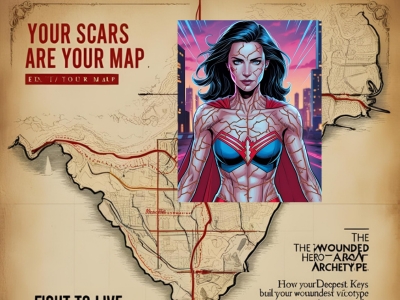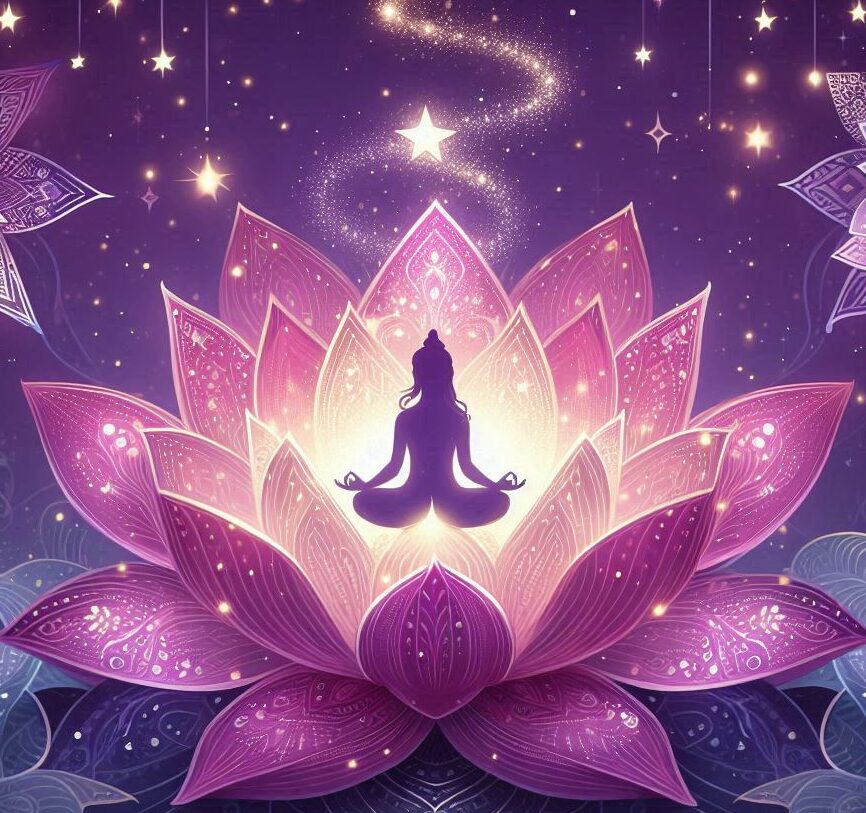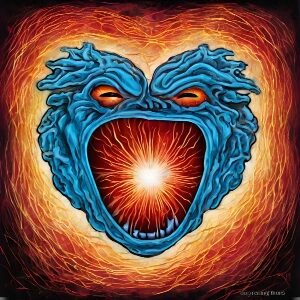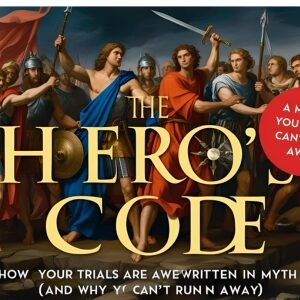
The Wounded Hero Archetype: How Your Deepest Wounds Hold the Keys to Your Greatest Evolution
The Hidden Power of Your Scars
Every hero’s journey begins with a wound.
Not the kind that heals cleanly, but the kind that lingers—a deep, soul-level cut that shapes destiny. In myths, literature, and psychology, the most compelling heroes are not the flawless warriors but the scarred ones. The ones who have bled, fallen, and risen—not in spite of their wounds, but because of them.
This is the essence of the Wounded Hero archetype—a figure who transforms pain into wisdom, suffering into strength, and personal trauma into universal healing.
Carl Jung called this the Wounded Healer—the idea that our deepest wounds contain the medicine we’re meant to offer the world. Joseph Campbell’s Hero’s Journey reveals that the ordeal—the wound—is not an obstacle but an initiation.
Your scars are not mistakes. They are sacred texts, written in the language of pain, waiting to be deciphered.
This article will guide you through:
- The psychology of the Wounded Hero
- How to recognize if this archetype is active in your life
- The alchemical process of turning pain into power
- How your wounds reveal your life’s purpose
The Wounded Hero in Myth and Psychology
1. The Archetype Across Cultures
From Chiron, the wounded centaur of Greek mythology who became a legendary healer, to Harry Potter’s lightning-shaped scar marking his destiny, the Wounded Hero appears in every culture.
- Chiron: Abandoned at birth, poisoned by an incurable wound, yet became the greatest mentor of heroes.
- Odysseus: His journey home was shaped by suffering, yet his wisdom came from what he endured.
- The Phoenix: A creature that must burn to be reborn—symbolizing destruction as a prerequisite for transformation.
2. Jung’s Wounded Healer
Carl Jung observed that the most effective healers were often those who had been wounded themselves.
“Only the wounded physician heals.” — Carl Jung
Why? Because true empathy is forged in the fires of personal suffering. If you’ve known despair, you can recognize it in others. If you’ve healed, you can guide them.
3. The Hero’s Journey and the Necessary Wound
Joseph Campbell’s monomyth (the universal hero story) follows a pattern:
- The Call to Adventure (a wound or crisis disrupts normal life)
- The Ordeal (the deepest suffering, where the old self dies)
- The Return (the hero brings back wisdom to heal others)
Your wound is not random. It’s the call to your evolution.
Is the Wounded Hero Active in Your Life? (5 Key Signs)
Not everyone with trauma is a Wounded Hero—this archetype is active when you’re consciously transforming pain into purpose.
Here’s how to know if it’s your dominant archetype right now:
1. You Attract Situations That Reactivate Old Wounds
- Repeated relationship patterns (abandonment, betrayal, feeling unseen)
- Career challenges that mirror childhood struggles (authority issues, fear of failure)
- Physical ailments linked to emotional wounds (chronic pain, autoimmune responses)
This isn’t punishment—it’s soul-level curriculum. The universe keeps bringing you similar lessons until you master them.
2. You Feel Called to Transform Pain Into Service
- A deep urge to help others with similar struggles
- Careers in healing, teaching, or advocacy (therapists, coaches, activists)
- A sense that your suffering had a higher purpose
3. You Notice Repetitive Emotional Patterns
- The same fears resurfacing in different forms
- Triggers that feel disproportionate to the situation (because they’re tied to older wounds)
- A sense of “Why does this keep happening to me?”
4. You Have Deep Compassion for Others’ Suffering
- You can detect pain in people even when they hide it
- You’re the friend people confide in during crises
- You feel a responsibility to “ease the burden” for others
5. You Search for Meaning in Your Struggles
- You refuse to believe suffering is meaningless
- You study psychology, spirituality, or philosophy to make sense of pain
- You see challenges as initiations rather than punishments
If these resonate, you’re not just surviving your wounds—you’re being forged into a guide for others.
The Alchemy of the Wounded Hero: Turning Lead Into Gold
Alchemists sought to transform base metals into gold. The Wounded Hero’s alchemy? Transforming trauma into wisdom.
Here’s the four-step process:
Step 1: Acknowledge the Wound Without Victimization
- Do: “This hurt me, but I choose to grow from it.”
- Don’t: “This ruined me, and I’ll never recover.”
Victimhood keeps you stuck. Sovereignty sets you free.
Step 2: Honor the Protection It Provided
Every wound initially served a purpose:
- Abandonment wounds? They made you self-reliant.
- Betrayal wounds? They sharpened your discernment.
Thank your pain for protecting you—then release the armor that no longer serves you.
Step 3: Extract the Essential Lesson
Ask:
- What did this teach me about myself?
- How did this make me more compassionate?
- What strength did I discover because of this?
Step 4: Share the Fruits of Healing
Your story isn’t just for you—it’s medicine.
- Write, speak, or mentor others.
- Your vulnerability gives others permission to heal.
- Your survival becomes someone else’s roadmap.
Your Wounds Reveal Your Life’s Purpose
Your deepest pain points to your sacred assignment:
- Were you neglected? You’re meant to teach presence.
- Were you silenced? You’re meant to amplify voices.
- Were you made to feel small? You’re meant to empower others.
Case Study: Brené Brown
- Her research on shame and vulnerability came from her own struggles.
- She turned personal pain into a global movement.
- Her wounds became her work.
Exercise: Mapping Your Wound to Your Gift
- Identify Your Core Wound (What hurt the most in your life?)
- Ask: How did this shape my strengths?
- Complete the Sentence:
- “Because I experienced ______, I now can help others with ______.”
You Are the Hero of Your Story
The Wounded Hero doesn’t transcend their scars—they reclaim them as sacred.
Your pain is not your enemy. It’s your initiation, your curriculum, your superpower.
The world doesn’t need more perfect people. It needs healed people—those who have walked through fire and can now light the way for others.
Your wounds are not your weakness.
They are your keys.
Your wisdom.
Your legend.
Now—how will you use them?
Next Steps
- Journal Prompt: “If my wounds were meant to teach me something, what is the lesson?”
- Share Your Story: Your healing could be someone else’s hope.
- Explore Further: Study the Hero’s Journey or shadow work.
You are not broken. You are becoming.
✨ Which wound are you ready to transform into wisdom? Let me know in the comments. ✨
About the Author





0 Comments